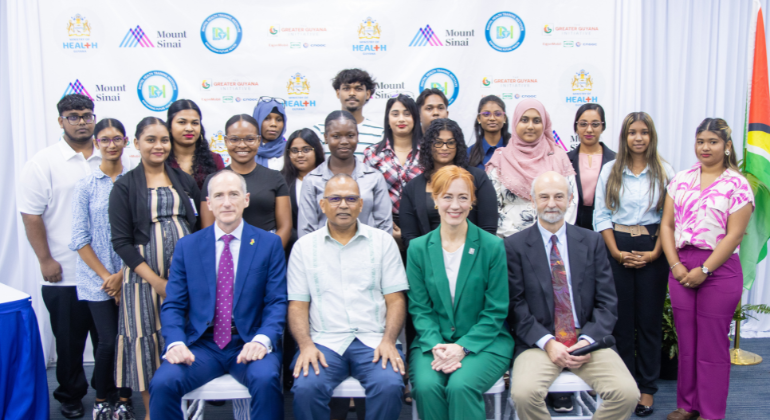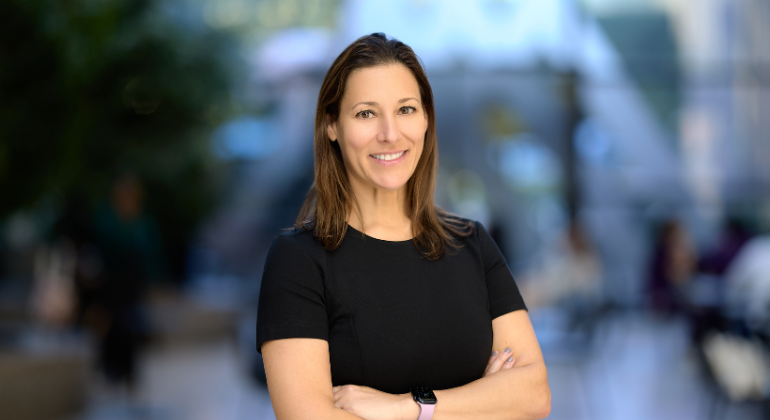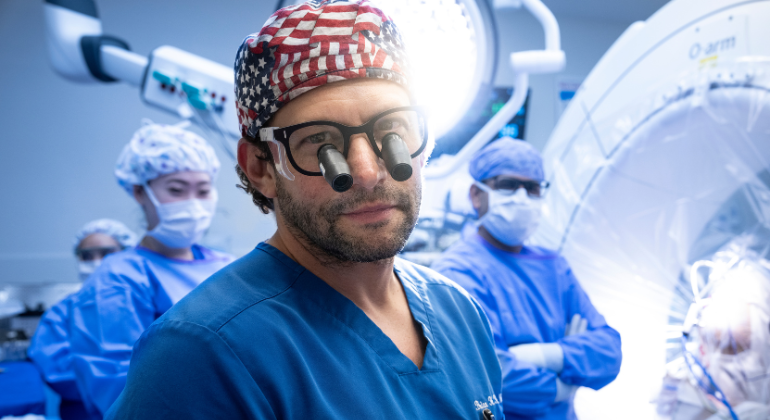Vitamin D-Rich Foods During Pregnancy May Reduce Allergy Risk in Children
Higher intake of foods containing vitamin D during pregnancy – but not supplemental vitamin D intake – was associated with reduced risk of development of allergies in children, according to a study led by an investigator from the Icahn School of Medicine at Mount Sinai and published today in The Journal of Allergy and Clinical Immunology.
The research team conducted a prospective study of 1,248 mothers and their children in the United States over time, from the first trimester of pregnancy until the children reached about 7 years old. They found that higher intake of food-based vitamin D (equivalent to the amount of vitamin D in an 8-ounce serving of milk per day) during pregnancy was associated with 20 percent less hay fever at school age. There was no risk reduction linked to vitamin D intake by supplement.
“Expectant mothers have questions about what they should eat during pregnancy, and our study shows that it’s important to consider the source of nutrients in a mother’s diet,” said Supinda Bunyavanich, MD, MPH, Assistant Professor in the Department of Pediatrics, Department of Genetics and Genomic Sciences and The Mindich Child Health and Development Institute at the Icahn School of Medicine at Mount Sinai. Foods that contain vitamin D include fish, eggs, dairy products, mushrooms and cereals.
Vitamin D modulates the immune system, and its potential role in asthma and allergy has been of interest. Many prior studies have examined vitamin D and allergy outcomes at single points in time, but this study comprehensively assessed vitamin D levels at multiple points (during pregnancy, at birth and at school age) and by different methods (food frequency questionnaire and tests of serum 25(OH)D levels in both the mothers and school-age children).
“This study may influence nutritional counseling and recommendations to expectant moms to include vitamin D-rich foods in their diets,” said Bunyavanich.
The National Institutes of Health supported this research. Collaborating institutions included Harvard Medical School, Harvard Pilgrim Health Care Institute, Brigham and Women’s Hospital and University of Virginia Health System.
Video of Dr. Bunyavanich discussing her research can be found at this link:
About the Mount Sinai Health System
Mount Sinai Health System is one of the largest academic medical systems in the New York metro area, with 48,000 employees working across seven hospitals, more than 400 outpatient practices, more than 600 research and clinical labs, a school of nursing, and a leading school of medicine and graduate education. Mount Sinai advances health for all people, everywhere, by taking on the most complex health care challenges of our time—discovering and applying new scientific learning and knowledge; developing safer, more effective treatments; educating the next generation of medical leaders and innovators; and supporting local communities by delivering high-quality care to all who need it.
Through the integration of its hospitals, labs, and schools, Mount Sinai offers comprehensive health care solutions from birth through geriatrics, leveraging innovative approaches such as artificial intelligence and informatics while keeping patients’ medical and emotional needs at the center of all treatment. The Health System includes approximately 9,000 primary and specialty care physicians and 10 free-standing joint-venture centers throughout the five boroughs of New York City, Westchester, Long Island, and Florida. Hospitals within the System are consistently ranked by Newsweek’s® “The World’s Best Smart Hospitals, Best in State Hospitals, World Best Hospitals and Best Specialty Hospitals” and by U.S. News & World Report's® “Best Hospitals” and “Best Children’s Hospitals.” The Mount Sinai Hospital is on the U.S. News & World Report® “Best Hospitals” Honor Roll for 2025-2026.
For more information, visit https://www.mountsinai.org or find Mount Sinai on Facebook, Instagram, LinkedIn, X, and YouTube.

Mount Sinai Health System to Roll Out Microsoft Dragon Copilot
Nov 05, 2025 View All Press Releases
NIH Awards $10 Million for the New York Regional Diabetes Research Center
Oct 23, 2025 View All Press Releases




